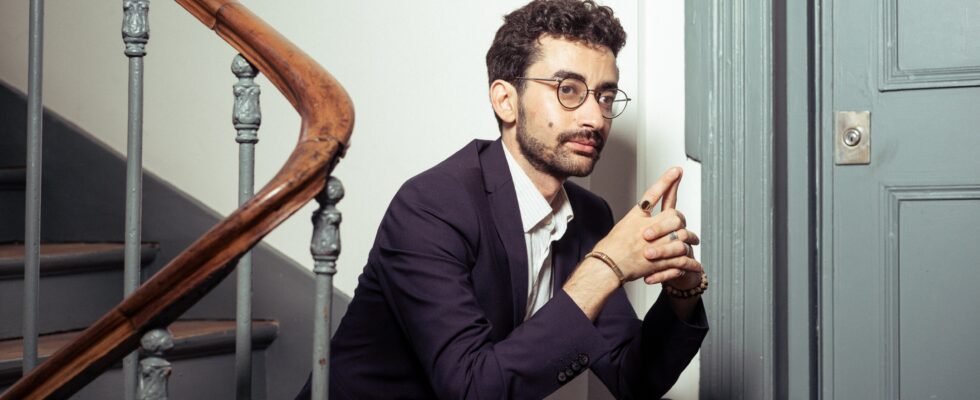The day after Bashar al-Assad fled, everywhere in Europe, the subject of immigration began to be discussed. Should we fear a flow of migrants invading Europe to escape the Islamists? On the contrary, will migrants return to Syria with the end of the civil war? Will the Islamist group Hayat Tahrir Al-Cham (HTC) boost jihadist migrations? Or are these fears exaggerated as Syria has freed itself from a tyranny that lasted more than half a century?
In 2012, I had to leave my native country to escape the Assad regime. I requested political asylum in France, ignoring its language and culture. It took me several years to integrate into Voltaire’s country. Little by little, I discovered that I was already French before even coming to France: secularism, belonging to the Enlightenment, commitment to democracy were the principles for which we sacrificed ourselves in Syria. I was an undocumented Frenchman until 2022, the year I obtained nationality. This allowed me to discover, for the first time in my life, the value of being a true citizen, with duties and rights. I never imagined that, two years later, my home country would get rid of the dictatorship. Today, the yoke of the butcher Assad no longer exists. For me, it’s time to return. But who will return to Syria: the French citizen having created a new life in Paris, or the Syrian with his tortured memory?
Every migrant has their story
The 30,000 Syrian refugees who have been staying in France since 2011, the year the war began, each have a different story. Some arrived as children, and today, they are students, employees, or even business leaders. They speak the language of Éluard better than Arabic. Others remained in their bubble and were unable to integrate into this country. There are also those who are separated from the values of the Republic and its civility. This is also the case for the more than 1.2 million Syrian refugees across Europe: each one has their own history, traumas and political ideas. It is absurd to put them all in the same bag. More than half of them live in Germany.
Syria is waiting for them to participate in its reconstruction. But it’s not easy to leave everything behind after making a new life here. Especially since the situation in Syria is extremely worrying. The economic crisis and the consequences of the war had a devastating impact on the population. With more than 90% of Syrians living in poverty, it is crucial that the international community, including Europe, commit to providing humanitarian aid and supporting the country’s reconstruction. Every effort counts to help Syrian families get back on their feet and rebuild their lives after so much suffering. However, in France, the right is already talking about the need for the return of Syrians, while emphasizing the danger represented by the installation of an Islamist state in Syria.
In France, there are 700 Syrian asylum seekers whose cases have not yet been resolved. Instead of questioning their request, as Marine Le Pen called for in the aftermath of Assad’s fall, it would be more useful to engage in a real fight against Islamic threats coming from there. Currently, there are more than 70 French jihadists present in Syria, some of whom participated in the latest battles against Assad. It is urgent for France to create a barrier against their return, while avoiding the emergence of an Islamist climate in Syria, which could become the cradle of a new international jihad. It could also lead to a new wave of mass migration to Europe. To achieve this, we must support the Syrian democrats, who defend a different vision of Syria, far from that of Assad and political Islam. Especially since France has a historical link with Syria which dates back to the 1920s, at the time of the mandate during which a partial democracy model was applied. The first Syrian constitution was adopted in 1928 by an elected Constituent Assembly.
Real French people of Syrian origin
As soon as the fall of the Assad regime was announced, thousands of Syrians returned from Turkey, Lebanon and Jordan. Damascus and Aleppo airports will open their doors to international flights from January 15. By following Syrians in Europe on social networks, we can see their impatience to return. Syrian embassies in Europe have announced the renewal of passports. For the first time in fifty-four years, these Syrians can go there and carry out administrative procedures without fear of being attacked or being on the blacklist of the Assad regime. Some say they refuse to return for fear of the establishment of an Islamic state or persistent insecurity. In all cases, it is essential to treat Syrian migrants individually, without lumping them together.
In France, there are not only Syrian refugees, but also real French people, with or without papers, of Syrian origin. I’m part of it. I adopted France which adopted me, and if I wish to return to Syria, it is also because I am a French citizen. It is not to relive it, but to reestablish a memory full of atrocities, to see my mother again, and above all because I identify with universalist France, committed to human rights. This citizen, who refuses to allow Islamists to settle in his adopted country, will not let them recover his country of origin either. For him, it is not possible to live freely here if freedom is not respected in the Middle East either. Fundamentalism does not recognize borders; why should freedom be limited?
* Writer and poet born in Damascus, Omar Youssef Souleimane participated in demonstrations against the regime of Bashar al-Assad, but, hunted by the secret services, had to flee Syria in 2012. Refugee in France, he published with Flammarion The Little Terrorist, The Last Syrian, A room in exile, and recently Being French.
.
